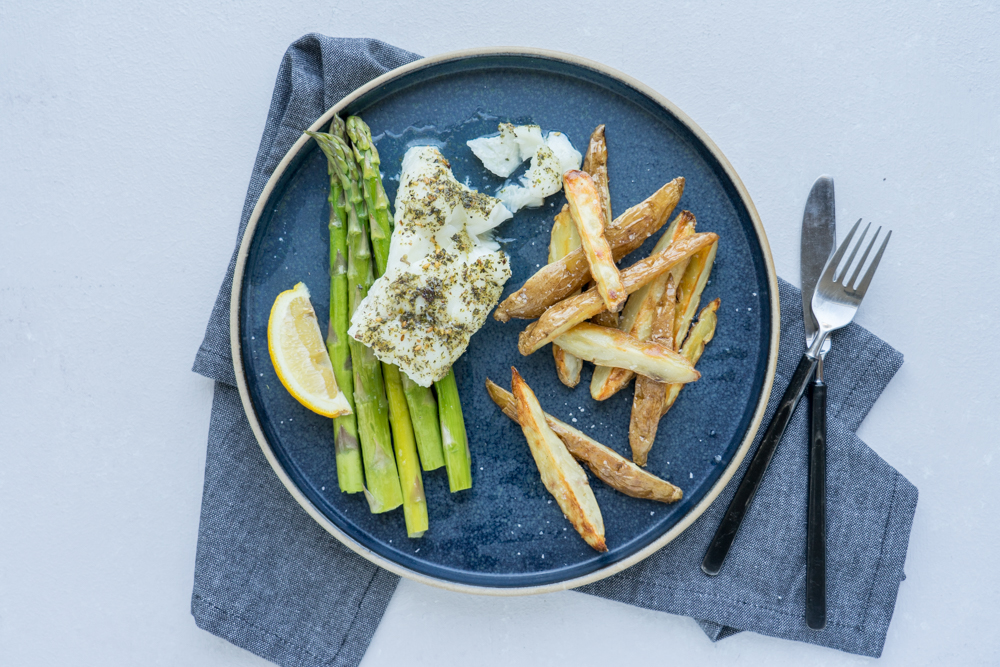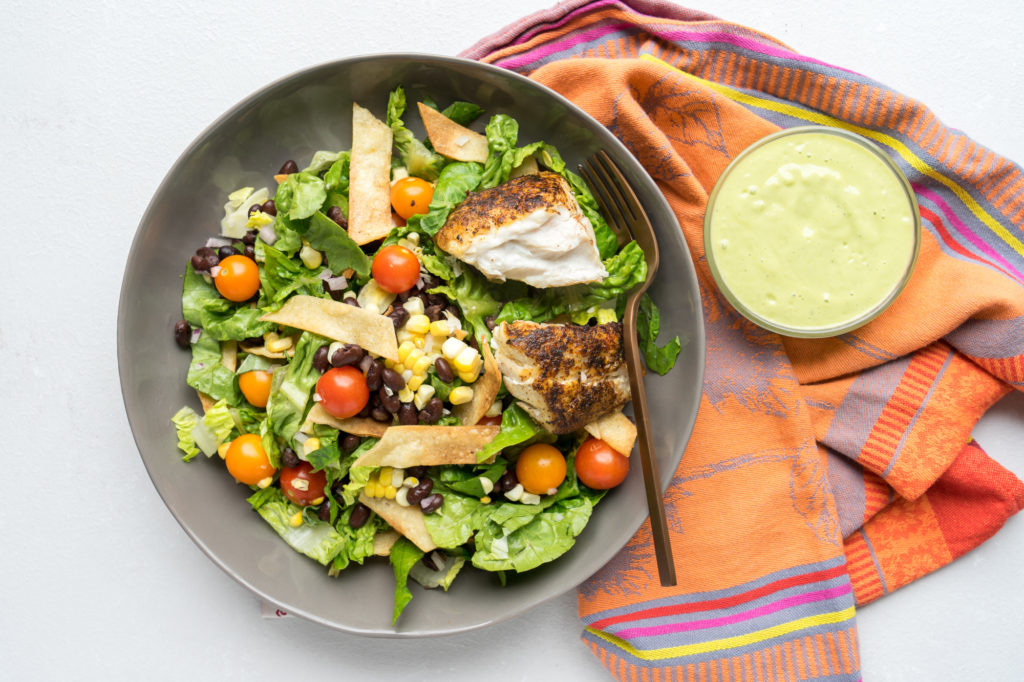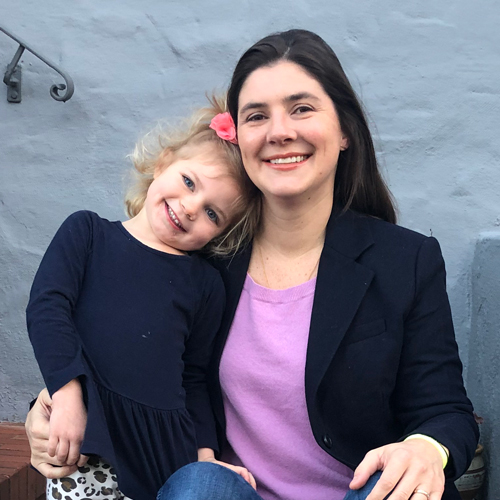Why Buying Sustainable Fish Matters! How To Do It Easily (+ Recipes)
Here in San Francisco, I haven’t been out to eat in a restaurant since Shelter in Place began in March. We’ve had take out, but with 2 toddlers in tow, the extra worry about keeping them spaced out and respectful while we dine outside just doesn’t feel worth it. But you know what I miss most? French Fries. Oh glorious french fries, I miss your golden, salty crunch and pillowy insides. And, when I’m thinking about french fries, I immediately think of fish and chips which is one of the top 3 ways to eat fries. (Survey results from a pool of one, just me.)
I wrote this recipe a few months ago as part of the Ends+Stems weekly meal planning service but I’m even more excited to share it again today in partnership with the Marine Stewardship Council (MSC). The MSC is celebrating Seafood Month in the U.S. and Canada throughout the whole month of October. For the past 20 years, the MSC has been working with scientists, fisheries, and brands to develop a system for supporting sustainable seafood consumption.
What is sustainable fishing and why does it matter? How much does it matter?
In short, sustainable fishing means that we’re leaving enough fish in the ocean to reproduce indefinitely so the fish population can remain healthy. It also means removing these fish from the ocean in a way that doesn’t disturb the habitat or other species around them. Additionally, sustainable fisheries are well managed, adaptable to changing conditions, comply with laws protecting the oceans, and importantly, they’re run in a way to ensure the fisherfolks can maintain their livelihood!
Hopefully, it’s clear why all of that matters and that it matters quite a bit, right? Our planet is interconnected and it’s easy to think that removing too many flounder from a section of the sea wouldn’t possibly have an effect on us eating in California, but it does. The Earth exists in a balance that can handle quite a lot of challenges but when it falls out of balance, the consequences can be hard to predict and far reaching.
The good news for seafood lovers is that there are so many types of delicious seafood and plentiful sustainable options.
This isn’t a case where you can not have what you love (not yet anyway, so lets keep prioritizing sustainable choices so we can keep it that way)! The MSC Blue Label is a super easy way to make decisions in the grocery store or fish market.
There are other labels on our foods – you’re probably familiar with the green organic label; there’s a common NO GMO label; a circled U for kosher; milk that says no rbGH; increasingly I’m seeing a Gluten Free label. In seafood there’s also a label for smart choices in farmed fish, labeling and a searchable database from the Monterey Bay Aquarium, and another group called the ASC. (This is a partial list).
There are some criticisms out there about all of these groups and labels and they can be impossible to compare because they take different slices of the whole picture into account. Some labels only look at one environmental factor vs. examining the entire picture – ex, dolphin safe labels only considering their safety but not other species or fisheries. One critique that does resonate with me is about affordability. Most labels do require a hefty fee from the producers looking to get certified and maintain it. My experience with this is not with seafood, but with Organic labeling. I used to purchase from a small farmer who was doing everything beautifully, better than the organic standards, but he didn’t manage to pay for the label. There are also stories of larger farms paying for the Organic label but never being supervised. But, I digress.
Ultimately where I land on buying sustainable fish is:
- We need to care about the sustainability of our food for the health of our bodies and Planet Earth
- It is very, very hard, if not impossible, to decide and do all of this research by yourself and for each product
- Small farmers will be approachable and available so you can talk to them about their practices. If they can’t afford a certification but you can MEET them, like at a farmer’s market, just ask what they’re about! Then they don’t need a label.
- Science based certifications – like the MSC Blue Fish Label – are overwhelmingly a great resource for shoppers who want to do the right thing but aren’t interested in a PhD in sustainable food practices.
There’s also a very strange reality in seafood selling that as much as 30% of fish is mislabeled. You might be buying sole and receiving escolar! This is a crazy story and I went down the rabbit hole of reading this last year when it broke. But I love that less than 1% of MSC certified fish was found to be mislabeled.
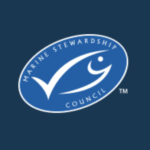
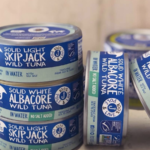
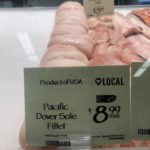
So! Look for the MSC Blue Fish label. I like this label because it is so widespread and available on canned products (like albacore tuna, my favorite) and fresh fish in the fish counter. It’s on almost 30,000 products and menus in 100+ countries, in fact. I’d be surprised if you don’t recognize it immediately. I like this label because it’s such a shortcut to doing the right thing and putting my money in line with my beliefs. I love cooking and eating seafood – I grew up on the east coast and now live on the west coast, I’ve actually never lived further than 20 miles from the ocean. Preserving the health, beauty, and diversity in our oceans is pivotal to our children’s health in decades to come.
Find out so much more at: https://www.msc.org/en-us/home
RECIPES
Now, enjoy this super simple Fish & Chips inspired dinner that you can make in 20 minutes. Just make sure the fish you buy was sustainably caught.
RECIPE: Oven Roasted Za’atar Fish & Chips
And because I know you’re inspired to cook more fish, here’s a second recipe for a Fish Taco Salad.
RECIPE: Fish Taco Salad with Black Beans + Avocado Dressing
(This post was in partnership with MSC BlueFish Label, obviously. The goal is promote our common goal of buying sustainable fish and keeping the ocean healthy and diverse for future generations! But the specific opinions are my own.)

